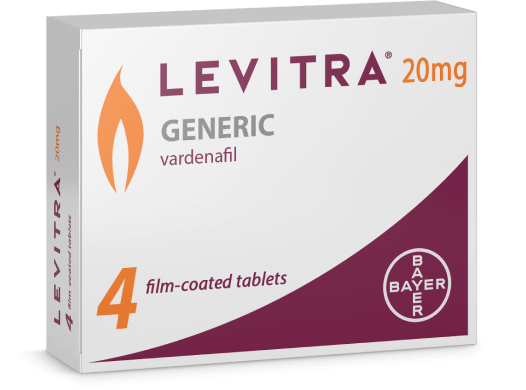
Eliquis, also known by its generic name apixaban, is a novel anticoagulant that plays a critical role in the management of various thromboembolic disorders. It is typically prescribed for patients at risk of developing blood clots, such as those with atrial fibrillation or those who have undergone specific surgeries. To better understand this medication, including its perceived benefits and potential side effects, you can refer to the Eliquis eliquis navodila.
What is Eliquis?
Eliquis is an oral anticoagulant medication that belongs to a class of drugs known as direct factor Xa inhibitors. It works by inhibiting Factor Xa, a critical enzyme in the coagulation cascade, thus reducing the formation of blood clots. This property makes Eliquis an effective option for the prevention of stroke and systemic embolism in patients with non-valvular atrial fibrillation, as well as for the treatment and prevention of deep vein thrombosis (DVT) and pulmonary embolism (PE).
How Does Eliquis Work?
The mechanism of action for Eliquis is centered around the inhibition of Factor Xa, which is essential for the conversion of prothrombin to thrombin in the clotting process. By blocking this enzyme, Eliquis effectively reduces the ability of the blood to clot, thereby preventing the formation of new clots and allowing for the resolution of existing ones. This mechanism is crucial for patients who are at high risk for developing thromboembolic events.
Indications for Use
Eliquis is primarily used for the following indications:
- Prevention of stroke and systemic embolism in patients with non-valvular atrial fibrillation.
- Management and prevention of DVT and PE in patients undergoing surgery or those at risk.
- Reduction in the risk of recurrence of DVT and PE after initial treatment.
Dosage and Administration

The dosage of Eliquis may vary depending on the specific condition being treated and the patient’s individual characteristics. Generally, the common dosing for the prevention of stroke in atrial fibrillation is 5 mg taken twice daily. However, in certain cases, a reduced dose of 2.5 mg may be recommended based on risk factors such as age, weight, and kidney function. It is important for patients to follow their healthcare provider’s instructions regarding dosage and administration to ensure the safety and effectiveness of the treatment.
Potential Side Effects
As with any medication, Eliquis may cause side effects. Common side effects include:
- Bleeding: as an anticoagulant, Eliquis increases the risk of bleeding, which can sometimes be serious.
- Nausea, vomiting, and stomach upset.
- Fatigue and dizziness.
Patients should be monitored for any signs of hemorrhage, such as unusual bruising, prolonged bleeding from cuts, or blood in urine or stool. Serious allergic reactions are also rare but can occur; symptoms may include rash, itching, or swelling.
Contraindications and Cautions
Eliquis is contraindicated in patients with active bleeding, severe hypersensitivity to apixaban, or those with significant liver dysfunction. Additionally, caution should be exercised in patients taking other medications that may increase the risk of bleeding, such as other anticoagulants, antiplatelet drugs, or nonsteroidal anti-inflammatory drugs (NSAIDs).
Monitoring and Follow-up
Patients taking Eliquis usually do not require routine coagulation monitoring, unlike traditional anticoagulants such as warfarin. However, regular follow-up appointments with a healthcare provider are vital for monitoring the patient’s overall health, kidney function, and the effectiveness of anticoagulation therapy. Adjustments in dosing may be necessary based on these evaluations.

Interactions with Other Medications
Eliquis can interact with various medications, potentially increasing the risk of bleeding or reducing its effectiveness. Common drug interactions include:
- Certain antifungal agents (e.g., ketoconazole).
- Antiretroviral drugs for HIV (e.g., ritonavir).
- Anticonvulsants such as carbamazepine or phenytoin.
- Other anticoagulants or antiplatelet medications.
It is crucial for patients to inform their healthcare provider about all medications they are taking, including over-the-counter drugs and supplements, to prevent potential interactions.
Managing Emergencies
In case of major bleeding, there is no specific antidote for Eliquis. However, in urgent situations where reversal of anticoagulation is necessary, prothrombin complex concentrates (PCCs) may be used to aid in clotting. Patients should seek immediate medical attention if they experience signs of a severe bleeding event.
Patient Education
Education is crucial for patients on Eliquis. They should understand the importance of adherence to prescribed dosages, recognize signs of potential side effects, and know when to seek medical help. Patients are also encouraged to carry identification that indicates they are on anticoagulant therapy, as this can be vital in emergency situations.
Conclusion
Eliquis represents an important advancement in anticoagulation therapy, offering effective treatment with a convenient dosing schedule and a lower risk of certain complications compared to traditional anticoagulants. However, patient awareness and education are essential to maximizing the benefits of this medication while minimizing risks. Anyone considering Eliquis should thoroughly discuss it with their healthcare provider to determine the best treatment plan tailored to their individual health needs.
If you are considering starting treatment with Eliquis, or if you have any questions about its effects, indications, or interactions, please consult your healthcare provider for more information.



